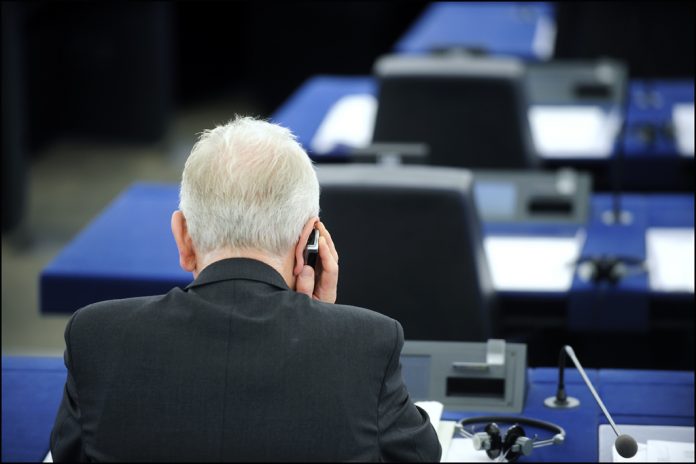The European Parliament and European Council on June 6 agreed on a provisional agreement on a reform of EU telecom rules. The aim is to boost the investments needed to make 5G connectivity available for all EU citizens by 2020, enhance protection of users and introduce a cap on disproportionate fees on calls between EU countries.
According to the provisional Telecom Code, the fees for intra-EU calls are capped to 19 cents for phone calls and 6 cents for text messages.
“Cheaper phone calls are a victory for all EU citizens,” said Dita Charanzová (ALDE, CZ), rapporteur for IMCO opinion on the Telecom Code. “I hope to this a first step towards an EU where domestic and international calls will cost the same… The Parliament achieved many other measures for consumers, from compensation if something goes wrong when switching providers to greater protections for persons with disabilities, to guaranteed access to affordable internet for all.”
The co-investment model introduced by the provisional agreement aims to create a more predictable investment environment. It encourages existing civil engineering infrastructure to be used, wherever possible, as well as agreements between operators, where these have a positive effect on competition.
The draft deal obliges providers to notify consumers to help them better monitor the use of time or volume billed. This will make it easier for consumers to compare offers and to switch operator and receive compensation if the operator takes too long to carry out the switch.
Other provisions call for access to contractual information and emergency services to be guaranteed for users with disabilities.
There are also plans to introduce a “reverse 112 system” to ensure citizens are alerted by SMS in the event of imminent major emergencies and disasters, such as a terrorist attack or a natural catastrophe.
As for the deployment of 5G across Europe, this will boost an increasing number of sectors and new wireless communications technologies. According to the Commission, this will make the use of many applications possible, from connected vehicles to smart cities and e-healthcare.
“Together with the guarantee of a faster time to market of spectrum resources, this provision will simplify regulatory intervention and ensure greater consistency and predictability in spectrum assignment – crucial for Europe to respond to the challenges raised by the development of 5G communications,” said Pilar del Castillo Vera (EPP, ES), ITRE rapporteur on the Telecom Code.
In response to the provisional deal, the European People’s Party (EPP) Group in the European Parliament noted that the roll out of very fast fibre networks in EU member states is crucial for people and businesses.
“The new co-investment model we agreed on will encourage the private sector to invest more in fibre networks while safeguarding competition,” said Pilar del Castillo MEP, EPP Group spokeswoman and the European Parliament’s chief negotiator on the European Electronic Communication Code (EECC), after a successful conclusion to the negotiations between the Council and the European Parliament.
In turn, the Progressive Alliance of Socialists and Democrats (S&D) Group welcomed the deal, announcing that it led the EU’s quest to put an end to roaming charges and is now pushing for a drastic reduction in the price of intra-EU calls.
The S&D Group led the European Union’s quest to put an end to roaming charges and it is now pushing for a drastic reduction in the price of intra-EU calls.
Miapetra Kumpula-Natri MEP, the S&D negotiator on behalf of the industry committee in the Parliament, said: “The end of roaming charges was one of the biggest achievements of the EU and of our political group. Citizens know that they can travel around Europe and still call home or use the internet with no extra charges. What we want to do now is to make sure that prices are not excessive when, for example, a person in Belgium wants to call a friend just across the border in Luxembourg, or even in Finland.”
“It is on days like today that I realise how our work as MEPs has a real impact on improving the daily lives of all Europeans,” added Marlene Mizzi MEP, the S&D negotiator on behalf of the internal market parliamentary committee. “After months of very tireless negotiations, yesterday we finally reached an agreement that will lower international call charges in many member states, where the price is still higher than 19 cents per minute.”

